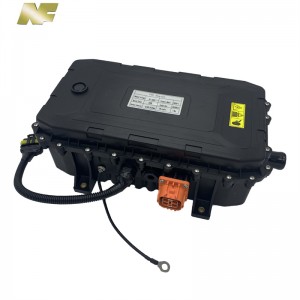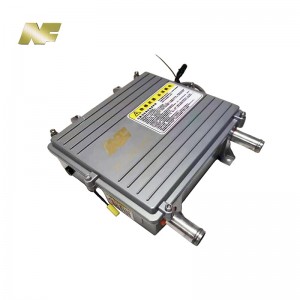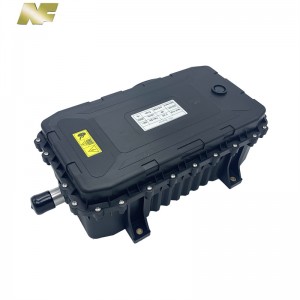As electric vehicles continue to gain popularity, so do advances in heating technology. One of the latest innovations in this field is the introduction of PTC (positive temperature coefficient) and HV (high voltage) coolant heaters for electric vehicles.
A PTC heater, also known as a PTC coolant heater, is a heating element that utilizes a positive temperature coefficient to regulate heat output. This means that as the heater's temperature increases, its resistance increases, effectively self-regulating the heat produced. This makes the PTC heater efficient and cost-effective as it does not require a separate control system to maintain the required temperature.
High-voltage coolant heaters, on the other hand, are designed to work with high-pressure systems in electric vehicles. These heaters are designed to operate in a voltage range from 400V to 900V, making them compatible with the high-voltage powertrains used in many modern electric vehicles.
The combination of these two technologies, PTC heater and high-voltage coolant heater, represents a major leap forward for electric vehicle heating systems. By leveraging the efficiency and self-regulating capabilities of PTC heaters, as well as high-voltage system compatibility with HV coolant heaters, electric vehicle manufacturers can now provide a more efficient and reliable heating solution for their vehicles.
One of the main advantages of these new heating technologies is their ability to improve the overall energy efficiency of electric vehicles. Traditional heating systems, such as resistive heaters, can be very energy-intensive, resulting in reduced driving range and shorter battery life. In contrast, PTC and HV coolant heaters are designed to operate more efficiently, consume less energy and minimize the impact on vehicle range.
In addition, these new heating technologies can also bring a more comfortable and convenient driving experience to electric vehicle owners. Even in cold weather conditions, PTC and HV coolant heaters quickly and effectively heat the vehicle interior, ensuring that occupants remain comfortable and safe while on the road.
Additionally, the introduction of these cutting-edge heating technologies underscores the electric vehicle manufacturer’s ongoing commitment to pushing the boundaries of innovation and delivering quality products to consumers.
Electric vehicle manufacturers have incorporated PTC and HV coolant heaters into their latest models, and the response from consumers has been very positive. Owners of electric vehicles equipped with these new heating technologies report improved heating performance, increased energy efficiency and greater overall satisfaction with their vehicles.
Looking to the future, it is clear that PTC and HV coolant heaters will continue to play an important role in the continued development of electric vehicle heating systems. As the demand for electric vehicles continues to grow, so does the need for advanced heating solutions that can deliver both efficiency and performance.
In summary, the introduction of PTC and HV coolant heaters represents a major advancement in electric vehicle heating technology. These innovative heating solutions improve energy efficiency, enhance comfort and are compatible with high-voltage powertrains, making them perfect for the next generation of electric vehicles. With their proven benefits and positive reception from consumers, it is only a matter of time before PTC and HV coolant heaters become standard features in electric vehicles worldwide.



Post time: Jan-17-2024




